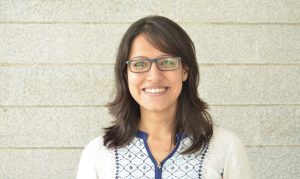
Tactics and Strategies of Orchestrating Collective Action
Lessons from catalysing systemic education transformation in Punjab
- Building trust was critical: We built and nurtured relationships through shared meaning making, dialogues and creating spaces for alignment of values, mindsets and goals. This began right at the conception of the Collective. We shared over 25 ideas (micro-improvements like introducing data collection and analysis tools, developing coaching and mentoring capacity of leaders, introducing monthly parent teacher meetings, etc.) to not just the state’s Education Secretary, but also to other department officials – stakeholders who we work with and for, and the efforts kickstarted. All stakeholders directly contribute their feedback and insights when we design programs and solutions and actively engage with the Collective in prototypes as well.
- One clear point of the game: The Punjab Education Collective’s vision is “All children in Punjab will attain foundational capabilities in an enabling environment by 2030.” Our north star is to develop the foundational literacy and numeracy abilities of the students through a focus on school level changes in the state of Punjab.
The common aspect of the founding partner organisations was the belief that quality education opens the pathway to possibilities in life. This helped us come together. We understood the government’s priorities, deep dived to understand the key education challenges in the state, interacted and interviewed the stakeholders to get a first hand understanding of their cares and concerns. We also hosted consultative workshops and formal conversations with educationists, influencers, politicians and academia in Punjab to invite their opinions and to make education in public schools a subject of dialogue. With all these inputs and insights, the Collective came to the drawing board with their understanding of the problem and priorities, diverse experiences and learnings, and individual organisation goals and strategies to find the common ground to work on.
- Co-creation as a way of being: The Collective has a multidisciplinary, co-creation approach – designing, orchestrating, and evangelising change. As a designer, PEC co-creates programs and solutions by actively evaluating what might work at scale, as well as by leveraging technology to ensure visibility into impact, and that data-informed decisions are made by stakeholders across the system.
As an orchestrator, PEC curates shared meaning-making experiences with other CSOs, academia and experts to enable the government in broader implementation of the initiatives. Having the government institutions as co-creation and amplification partners in the Collective ensures that successful prototypes are scaled to the entire spectrum of 19,000 schools in the state. The Collective has also been able to build a larger network of CSOs to drive impact across domains.
In the role of an evangelizer, the Collective engages in continuous dialogues with key actors and influencers around the importance of leadership in the education system and on societal thinking values such as empowering actors with data, and catalysing interactions using open-source technology. The Collective has also created opportunities for better visibility of the state’s success stories on a national stage.
Make conversations action biassed.
Many times, when organisations and people come together, we tend to get into ideological and philosophical dialogues. These are important, because alignment on values stems from these. However, it is important to have a bias to action. Unless the group takes up a project to design and execute together, we have seen the energy diminish. Many partners start getting disillusioned, if there is no action and only conversation.
Plan for tangible, quick wins and celebrate them.
Systemic change is always long-term. So, it is important that we design for immediate outcomes that are tangible and visible, and thus are able to create a sense of achievement. Eg. When one works to improve the school-community linkages, or parental participation, having an agenda-driven Parent Teachers Meeting with over 60% attendance could be a quick win. Meeting such well-defined immediate and intermediate milestones can infuse a sense of continuous achievement and celebrating these fills the collective with constructive energy.
This is the second piece in the three-part series on Collective Action. Read the previous piece on illustrating what collective action is and how it is helpful. The next and last piece covers the challenges, along with the role of facilitative leadership in orchestrating collective action.
Meet the Author

Khushboo Awasthi
A management professional turned education enthusiast, Khushboo is the Co-Founder & Chief Operating Officer of ShikshaLokam - an education leadership catalyst and Mantra4Change, a non-profit driving systemic public schools transformation in the Indian education system. With 13+ years of diverse experience in education and healthcare domain she is recipient of Women Transforming India Awards 2021 instituted by NITI Aayog, a Schwab Social Innovator of the Year 2023 and is part of BW Education 40 Under 40 Power List 2022. Khushboo is a travel enthusiast, a curious learner and an avid reader. Her interests lie in exploring concepts of agency, networks, large scale social movements and societal role of technology in encouraging co-creation and collaboration.

Khushboo Awasthi
A management professional turned education enthusiast, Khushboo is the Co-Founder & Chief Operating Officer of ShikshaLokam - an education leadership catalyst and Mantra4Change, a non-profit driving systemic public schools transformation in the Indian education system. With 13+ years of diverse experience in education and healthcare domain she is recipient of Women Transforming India Awards 2021 instituted by NITI Aayog, a Schwab Social Innovator of the Year 2023 and is part of BW Education 40 Under 40 Power List 2022. Khushboo is a travel enthusiast, a curious learner and an avid reader. Her interests lie in exploring concepts of agency, networks, large scale social movements and societal role of technology in encouraging co-creation and collaboration.
